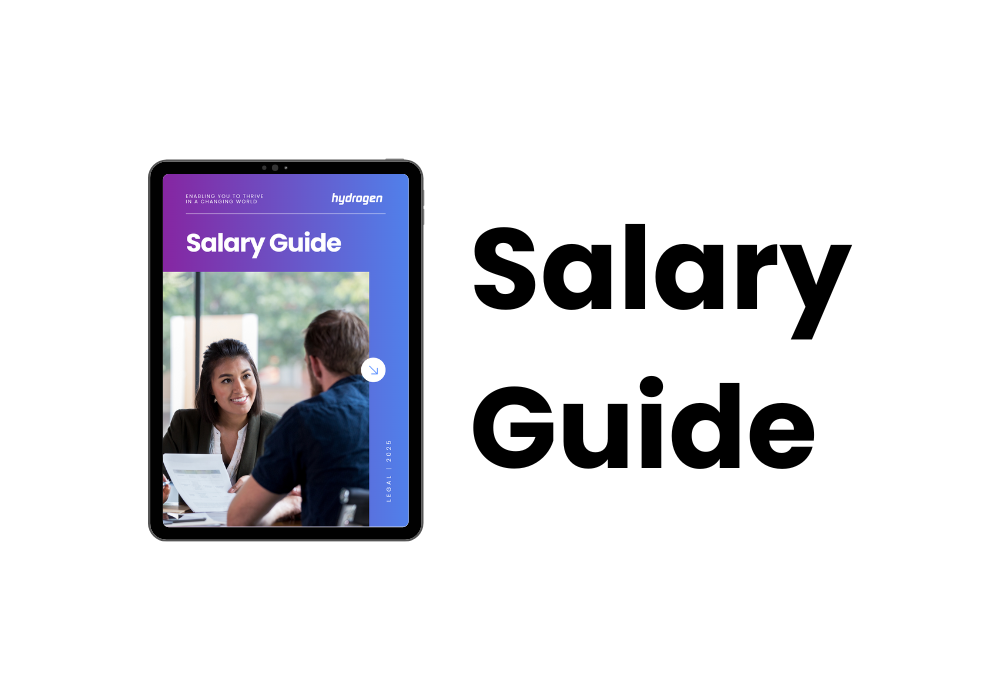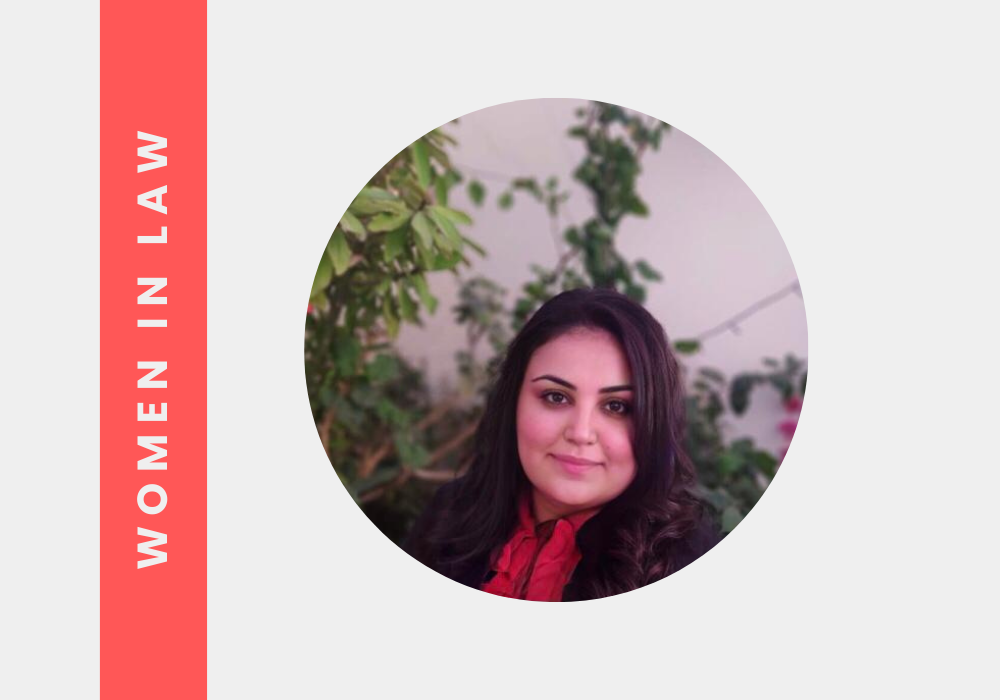Career Milestones, Challenges, and the Future of Law in the Middle East: An Interview with Mohammad Abandah
Navigating a successful career in the legal profession, Mohammad Abandah has demonstrated resilience, adaptability, and a strategic understanding of both law and business. In this blog, we explore his journey from a rigorous start in private practice to ascending to leadership roles within major multinational companies across the Middle East. We'll delve into the key milestones that shaped his progression, the challenges he overcame, and his vision for the future of legal services in this dynamic region. Mohammad's experiences offer valuable insights for both aspiring lawyers and seasoned professionals looking to advance their careers.
Can you share your career trajectory and the key milestones that paved the way for your progression to a leadership position within the legal profession?
After completing my university studies, I was fortunate to start a hard two-year training period, simultaneously in the legal department of a major bank and at a law firm. This demanding schedule (often exceeding 12 hours of work daily) accelerated my professional development, allowing me to acquire skills at a much faster rate than my peers. As a result, I passed the Bar certification with the highest marks ever recorded in the history of the Bar Association.
This achievement led to an immediate offer from one of the largest law firms in Jordan, where I began my career as a junior lawyer. Over the next 12 years, I advanced steadily, eventually becoming a partner in 2010, responsible for leading the banking department and dispute resolution within the firm.
In 2012, I transitioned to an in-house role as the Head of Legal for the GCC Region for a multinational insurance company based in Dubai, UAE. This shift was essential to understand business strategy development and the critical importance of integrating legal requirements with business objectives to ensure sustainable growth and protect corporate interests. My time in-house improved my interpersonal, negotiation, problem-solving and relationship management skills.
In 2021, I took on the role of Chief Legal and Compliance Officer for the Middle East Region at another multinational company with diverse business lines of financial services. This position has tested my leadership abilities in ways I hadn’t anticipated, particularly due to the complex dynamics and difficult personalities I’ve encountered. This experience has allowed me to deepen my expertise in managing difficult legal and compliance matters across multiple jurisdictions and to lead in demanding environments.
In your journey, what obstacles or setbacks did you are encounter, and how did you navigate these challenges to continue advancing in your career?
When reflecting on my career journey, I believe one of the biggest challenges I have faced was when I transitioned from private practice to an in-house role. Shifting from a purely legal focus to a business-oriented approach required me to quickly adapt and develop new skills in strategic thinking, business oriented negotiations and decision making in addition to learning new ways of relationship management.
Another big challenge was linked to my ability to navigate challenging environments and work with individuals whose values may not always align with mine, which could be common in some situations and what I have learned is that you will need always, as a lawyer, to remember mastering integrity and upholding the highest ethical standards despite what the business or the management might think or want. Such challenges taught me resilience, adaptability and the importance of understanding the business, changing the way of thinking to adapt to new environments, but always without losing the legal and moral compass.
How do you envision the role of technology shaping the future of legal services in the Middle East and what innovations do you believe will have the greatest impact on the industry?
We can agree that the Middle East in general is witnessing a significant transformation and legal professionals increasingly recognize the importance of technological integration. I believe that several innovations are expected to have a profound impact on the legal industry such as research technology which is enhancing the efficiency of legal research by providing access to region-specific regulations and legislative information in multiple languages.
Collaboration and communication tools are also facilitating better work and collaboration among legal teams, external counsels, stakeholders and clients.
The AI and machine learning have also started to be integrated in many legal services and are expected to revolutionize many areas such as contracts management, drafting and revision, compliance monitoring and identification of legal risks and opportunities.
I strongly believe that the future of legal services in the Middle East will see greater reliance on technology to meet evolving client demands and regulatory requirements. The Middle East for sure will benefit from the ongoing digital transformation and the legal sector will be part of that fast changing environment.
Can you share the unique challenges and opportunities that lawyers face in the Middle East region compared to other parts of the world?
The Middle East countries have diverse legal frameworks, special cultural and different business practices. One of the primary challenges in the Middle East is the ability of navigating the complex legal landscape with a big mix of local laws and regulations that despite the similarities they are vary (sometimes significantly) between the individual countries within the region. This requires a deep understanding of both the legal systems and the cultural contexts in which they operate. This means handling a particular matter in one country might require a different handling in another country. Also, the speed of regulatory developments and race for introducing and updating the regulations in the Middle East requires lawyers and legal professionals to invest massive amounts of time and efforts to keep up to the speed when covering multiple countries within the Middle East.
At the same time understanding the local culture in the Middle East is critical because trust and relationships are essential and often take precedence over formal arrangements. Lawyers must be skilled in building strong relationships with all stakeholders (including regulators, business partners and clients) which involves not only legal expertise but also cultural sensitivity and the ability to negotiate and communicate effectively in a way that resonates with local customs and values.
In terms of opportunities, as everyone can see the Middle East region witnessing ongoing growth, focus on economic diversification and investments in new sectors which will allow lawyers who can navigate these complexities and build strong, trust-based relationships to be well-positioned and to take advantage of the Middle East growth.
As a successful lawyer, we would love to know what makes you thrive?
I really enjoy the opportunities to solve complex legal challenges and make a meaningful impact for my clients or on the organization I work for. Analyzing complicated legal issues, being able to contribute to strategies and business goals and finding solutions that not only address legal concerns but also contribute to the broader success of the company is something I really enjoy. I also find great satisfaction in working with diverse teams, mentoring younger lawyers and developing strong partnerships with stakeholders. The trust and respect that comes from these relationships are incredibly rewarding and fuel the motivation to continue delivering exceptional results.
Lastly, continuous learning is essential to my growth and success, that is because the legal landscape is constantly evolving in the Middle East and staying ahead of changes requires a commitment to ongoing education and professional development. This pursuit of knowledge keeps me engaged, adaptable and prepared to tackle new challenges and helps me to continue to excel in my career and to, hopefully, make a lasting impact.
How do you see the role of women in the legal profession evolving in the Middle East, and what support can male counterparts provide?
It is clear that the role of women in the legal profession in the Middle East is evolving quickly. We can see more women entering the field both in-house and in private practice and we are seeing more and more women advancing to leadership positions. This progress is an evidence of the growing recognition of women’s capabilities and the value of diverse perspectives in the legal industry. However, there is still more work to be done to achieve true gender equality.
Creating an inclusive environment that supports and empowers women at every stage of their careers is essential and not only leadership has the duty to change but also male counterparts at each level have a crucial role to play in this evolution by offering support through mentoring and sponsoring female colleagues, advocating for their inclusion in high-profile matters and leadership opportunities among other things. Some countries and companies are doing better than others but the collective efforts of everyone is needed to drive better change. The good news is the fact that governments and officials across all the Middle East are paying attention and pushing to break down barriers to create more inclusive, equitable, and reflective of the diverse talent within the region.
What advice would you offer to aspiring lawyers who aim to progress to leadership positions?
First of all the need to build a strong foundation in legal knowledge by taking the time to master the core areas of laws and regulations in the Middle East and always trying to be thorough, diligent and always strive for excellence in our legal work. As a legal professional, integrity is the cornerstone and upholding the highest ethical standards in all dealings is a must. Our reputation as trustworthy and ethical lawyers is one of our greatest assets to advance in our careers.
Within the in-house community it is also crucial to shift from a purely legal perspective to a broader, business-oriented mindset by understanding how legal advice impact the organization’s goals and we need to learn how to link and align the legal advice to business objectives by building and maintaining strong understanding through relationships with business colleagues, clients and any other stakeholders.
Also, as I have mentioned before, the legal landscape in the Middle East keeps evolving and staying ahead requires a commitment to lifelong learning. Keeping up with legal developments, exploring new areas of the law and seeking out opportunities to enhance your skills through formal education, certifications, networking and practical experiences is another way to ensure progressing to the leadership positions.
The last thing I would say here is the ability to understand that the path to leadership will inevitably involve challenges and setbacks and how you respond to these difficulties will define your career. Having the required resilience, remaining adaptable in the face of change and interacting with these challenges as opportunities for growth will allow lawyers to succeed and grow.
How do you see the legal industry in the Middle East evolving over the next five years?
With the positive projected growth for the Middle East countries will continue to diversify their economies which will bring further demand for legal expertise in emerging sectors such as technology, renewable energy, healthcare and financial services. My guess is that legal professionals with specialized knowledge in these areas will be in high demand, and the legal profession will need to adapt to the complexities of these evolving industries. We will also see that the adoption of technology in the legal sector will be accelerating and legal tech will play a crucial role in streamlining processes, improving efficiency and enhancing access to legal services. For that; lawyers who embrace these technologies will be better positioned to meet the changing needs of clients and remain competitive in the market.
I strongly believe that the region will continue to update its legal and regulatory frameworks and there will be increased focus on compliance, data protection and corporate governance. This will create opportunities for legal professionals to advise on new regulations and help businesses navigate complex compliance landscapes. Also environmental, social and governance (ESG) considerations are becoming increasingly important in the Middle East especially that the governments and the companies are committing to sustainability goals and legal professionals will play a critical role in advising on ESG-related issues, including compliance with environmental regulations, corporate social responsibility and sustainable business practices.
Overall, lawyers who are proactive in adapting to these trends and embracing technological tools, understanding new regulatory landscapes and committing to sustainability and diversity will be well-positioned to thrive in the evolving legal landscape of the Middle East. The way I see it; the combination of economic diversification, technological integration, and regulatory reform presents a unique opportunity for legal professionals to expand their practices and make a bigger impact in the companies.








© Copyright 2024 Hydrogen Group Ltd. All rights reserved | Powered with 🤍 by Shazamme.com





